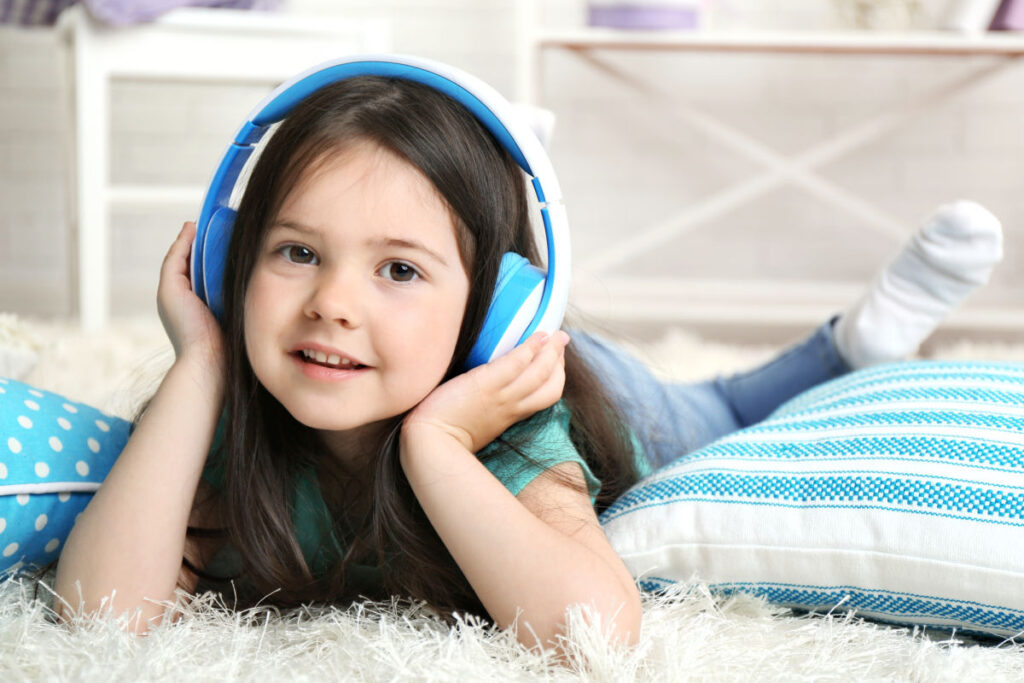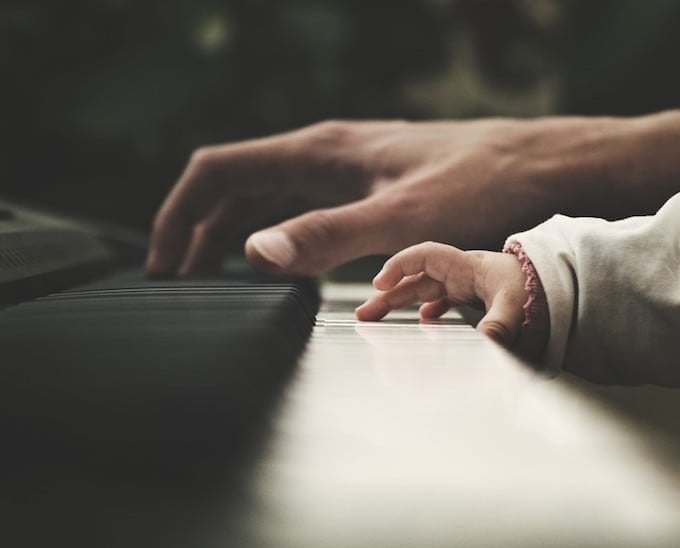The Benefits of Music Therapy for Kids
You know the feeling you get when you listen to one of your favorite songs? Your mood lifts, your body relaxes, and you easily recall happy memories. When you think of it this way, the idea of music therapy for kids makes perfect sense.

Listening to music or playing an instrument is a wonderful way to introduce mindfulness to kids. It’s an especially helpful mindfulness activity for teens.
It turns out, music can be healing – especially when it comes to your children.
The practice of music therapy increases both cognitive and motor skills in young children. Even if your children have grown out of their infant and toddler stages, the benefits of music are still important. Children with special needs seem to be especially receptive to music therapy.
What is Music Therapy for Kids?
Music therapy is like any other therapy, except the main form of treatment doesn’t come in a pill or on a table. Once a child’s needs and goals are identified, a music therapist creates a specific plan to address those issues. Whether a child’s concerns are physical or mental, there’s a musical treatment plan that can help.
Music doesn’t only affect a certain area of our brain, but activates every single neuron to form new connections and pathways. So when working on one skill with music, other skills will improve as well without any additional attention. You can expect a therapy session to include playing musical instruments, composing songs, singing, dancing, or simply listening to a good song.
Through lyrics and melodies, children are taught vital social and motor skills that stick well beyond their session. We all know the effectiveness a catchy song has on our memory. Although we may not remember important dates or even what we ate for breakfast, we can instantly call up jingles and accurately sing each line of TV commercials as if we rehearsed them.
An even better example is the ABC song. Who doesn’t sing when reciting the alphabet, even as an adult? Music therapists harness this medium’s effect on our memory and incorporate instructions for daily tasks or rules of different school subjects into songs and dances to help children learn. Whether musically gifted or not, your children can benefit from music’s therapeutic properties.
The Benefits of Music Therapy for Children
Music does a lot more for children than just brighten their mood and make them want to dance. According to the University of Southern California, children’s brains develop at a faster rate when exposed to music, helping them to read and learn languages much more quickly than children who don’t. This is because our brain’s way of learning speech is identical to how we process music.
This approach can help children learn at an even younger age since infants can hear outside sounds while still in the womb. Just as reading to your unborn child is beneficial, the effects music has on a baby can be seen at just one day old as they respond differently to the various pitches and rhythms songs contain. In addition, music promotes the overall health in your children’s bodies.
When listening to music that makes a child happy, his blood flow and circulation increases, helping to increase the absorption of nutrients and also relieve pain and stress. Listening to music is also known to help with emotional skills and help your child’s body and brain communicate better. This can be seen when motor skills become more advanced when dancing and playing instruments are incorporated into therapy sessions.
Music is also an outlet for children to express themselves if they have trouble communicating their feelings. Composing and playing music has a way of letting others know how we feel when we can’t put those emotions into words. Plus, music can help soothe the transition into bedtime for kids who have trouble falling asleep.
DIY Music Therapy Songs
Even if your children goes to music therapy, there are things you can do at home and on the road to continue the progress they’re making. Although the expertise and knowledge of a music therapist cannot easily be replicated without education, there are things any parent can do that can supplement the sessions.
Here are some to get you started:
- Use familiar tunes like “Twinkle Twinkle Little Star” or “Happy Birthday to You” to help them gain new comprehension by building on what they already know.
- Experiment with genres and try out various songs to see the effect they have and go from there. The most important thing to keep in mind, though, is that your children need to like the music.
- Be prepared when traveling or out of your routine. If you take a trip, make sure your prepared to have music ready if your child becomes bored or anxious.
- Use musical cues to signal the beginning and end of different tasks to help your children prepare themselves to switch tactics when they need to. Kids thrive on routine. It’s also a way to make cleanup time way more fun.
- Get in sync by matching your child’s mood and gradually transitioning to soothing music if they become agitated. Their breathing and heart rate will match the tempo of the song. You may notice a calming feeling in yourself, too.
Songs and soundtracks are more than just music to your child’s ears – but music to their whole body. Music therapy not only helps with their mental well-being but physical health as well.
What we listen to has a powerful impact on our cognition skills and how our bodies function. Even if your child can’t hold a tune, it doesn’t exempt them from all the benefits they can receive from the sound of music. All they have to do is listen.

